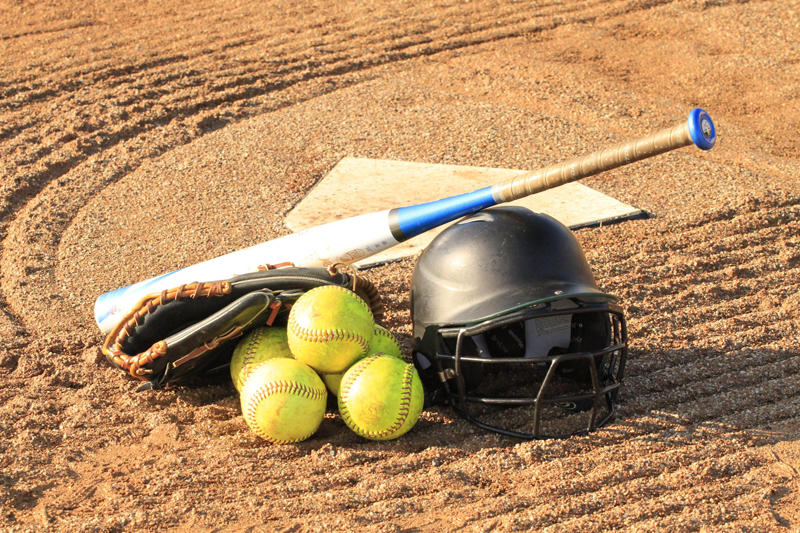Interference versus Obstruction

Within a normal softball game, fast-paced actions of fielders and runners necessitate many eyes to keep track of everything going on. Many plays require a knowledgeable umpire to decipher. Though usually not intentional, players get in the way of other players and the ball, or other equipment, sometimes gets in the way.
According to the ASA rulebook, "Interference is the act of an offensive player of team member, umpire or spectator that impedes, hinders, or confuses a defensive player attempting to execute a play. Contact is not necessary." This means that a batter, runner, or someone on deck cannot be in the way of any play being made. If this happens, the ball is considered "dead" and the batter or runner is usually called out. Runners who interfere with the play of the ball will be called for interference if they block fielders. Unfortunately, this is also true if a runner is hit by the ball while running. Runners can also be called out for interference if they are standing on the white part of the base (instead of the red part, for base runners) on first or third base.
Obstruction is defined by the ASA as "the act of a defensive player or team member who hinders or prevents a batter from striking at or hitting a pitched ball. By a fielder, who is not in possession of the ball in the act of fielding a batted ball. Contact is not necessary to impede the progress of the runner." Similar to obstruction, catcher interference is called many times on the catcher, if his/her glove is in the strike zone and is hit. This only counts if the ball is in play (the pitcher is pitching to the batter) and the batter is in the batter's box. If the catcher interferes in any way with the batter making contact with the ball, the umpire will usually call it a dead ball and send the runner to first base.
Umpires, coaches and spectators can also cause an interference. This usually results in a dead ball and all players must go back to the base where they were before the interference. The runner trying to score will be called out.
Usually, not everyone has the same view of what is happening on the field. Many times there is a call made that is widely disputed, especially if the losing team has a call made against them. Parents of players who are called out (or who made an error because of a lack of a call) are usually the ones who protest the loudest. Unfortunately, the umpire has the last say and many heated games have been won or lost supposedly because of a bad call. Players can help avoid some of these interference related calls by knowing where to be and where not to be.
https://www.srvgal.org/docs/RuleQuickSheet1.pdf
According to the ASA rulebook, "Interference is the act of an offensive player of team member, umpire or spectator that impedes, hinders, or confuses a defensive player attempting to execute a play. Contact is not necessary." This means that a batter, runner, or someone on deck cannot be in the way of any play being made. If this happens, the ball is considered "dead" and the batter or runner is usually called out. Runners who interfere with the play of the ball will be called for interference if they block fielders. Unfortunately, this is also true if a runner is hit by the ball while running. Runners can also be called out for interference if they are standing on the white part of the base (instead of the red part, for base runners) on first or third base.
Obstruction is defined by the ASA as "the act of a defensive player or team member who hinders or prevents a batter from striking at or hitting a pitched ball. By a fielder, who is not in possession of the ball in the act of fielding a batted ball. Contact is not necessary to impede the progress of the runner." Similar to obstruction, catcher interference is called many times on the catcher, if his/her glove is in the strike zone and is hit. This only counts if the ball is in play (the pitcher is pitching to the batter) and the batter is in the batter's box. If the catcher interferes in any way with the batter making contact with the ball, the umpire will usually call it a dead ball and send the runner to first base.
Umpires, coaches and spectators can also cause an interference. This usually results in a dead ball and all players must go back to the base where they were before the interference. The runner trying to score will be called out.
Usually, not everyone has the same view of what is happening on the field. Many times there is a call made that is widely disputed, especially if the losing team has a call made against them. Parents of players who are called out (or who made an error because of a lack of a call) are usually the ones who protest the loudest. Unfortunately, the umpire has the last say and many heated games have been won or lost supposedly because of a bad call. Players can help avoid some of these interference related calls by knowing where to be and where not to be.
https://www.srvgal.org/docs/RuleQuickSheet1.pdf
This site needs an editor - click to learn more!

Related Articles
Editor's Picks Articles
Top Ten Articles
Previous Features
Site Map
Content copyright © 2023 by Traci Falb. All rights reserved.
This content was written by Traci Falb. If you wish to use this content in any manner, you need written permission. Contact
BellaOnline Administration
for details.


